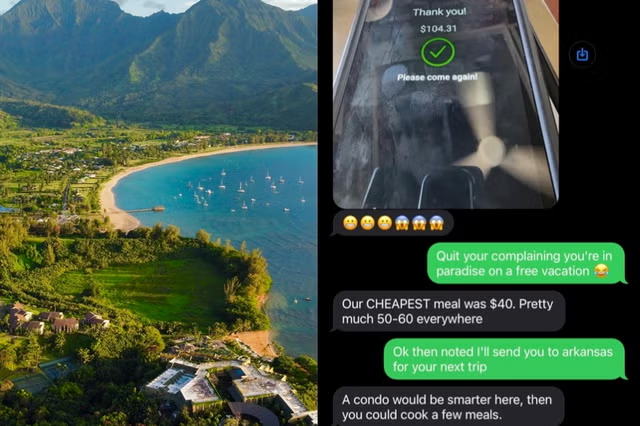Pride Month is in full swing and you and your friends may already be attending local LGBTQ+ themed rallies, parties, and concerts — or gearing up for some in the coming weeks. While you may not identify as someone in the LGBTQ+ community, your support for your queer friends as an ally, throughout June and beyond, is more vital than ever.
Pride began as a liberation march in 1970 to honor the first anniversary of the 1969 Stonewall Riots, when police raided New York City’s most popular gay bar and patrons fought back. In 1999, then US President Bill Clinton officially declared June as “Gay and Lesbian Pride Month” and then US President Barack Obama extended the title to “Lesbian, Gay, Bisexual, and Transgender Month” in 2009.
Fifteen years on, the allyship for the LGBTQ+ community has only grown, as non LGBTQ+ individuals have continued to vocalize their support for their queer friends and loved ones.
Although your presence at these events as an ally is valuable, your support is extended with the knowledge you take in, from the history of the LGBTQ+ community to the current laws that exist against queer people in the country.
Here are some of the ways that straight people can support their queer friends at Pride events, according to the organizers of two major Pride advocacy groups in the US.
How to get involved in the events you attend
Depending on what events are being held in your city, your Pride celebration could range from a parade that spans multiple streets to an LGBTQ+ themed night at a local bar — and there are more ways to support them than just turning up.
Speaking to The Independent, Sandra Perez, the executive director of NYC Pride, described how many NYC locals (plus tourists) are eager to participate in the biggest LGBTQ+ event in North America: the New York City Pride March.
“We certainly couldn’t do anything that we do without our volunteers,” she said. “We have up to 1,000 volunteers at any one time, working on the march and all of our other events in June. They’re the lifeblood of what we do. Beyond NYC Pride, I think people should and can take a really long hard look at the LGBTQ people in their lives, see if there’s a place where they can volunteer.”
Ashley Smith, the president of the Capital Pride Alliance Board in Washington, DC, agreed with Perez’s point, noting that his friends have volunteered at LGBTQ+ events throughout this month. He said that his friends are there because they want to be and enjoy doing so, but they also feel like they’re giving back to the queer community in a sense.
“It’s not the same as going to a homeless shelter, but at the same token, it’s a space for people to be able to come and feel comfortable to live authentically,” he said about non LGBTQ+ people attending Pride events. “They can also inquire questions with respect to: ‘What are the experiences you’re having versus my other experiences in the world as someone who’s straight?’”

Understand why non LGBTQ+ people take value in going to Pride events
According to Smith, allies for the LGBTQ+ community have a proud history too, dating back to how they took action during the 1969 Stonewall riots. He acknowledged that the support for the queer community has gotten even stronger in the years since the riots.
“We progressed over time and had more support from our allies over the years due to people here in America, and people in general, wanting the country to be in a place of inclusion,” he said. “We’re not trying to separate people, which has been the direction I feel that many people have tried to go into. I think that we’ve been able to build upon that and we continue to build upon that.”
Perez noted that many non LGBTQ+ people find comfort in the excitement and message of love behind so many Pride events.
She further explained why allies have such a positive response to the NYC Pride March, which has become one the largest Pride events in the world. “The first-ever march, and every march since, is about visibility. It’s about being your authentic self and the freedom to love openly,” she said. “And I think maybe for a lot of straight people, the joy they see is something you don’t see at every parade. I think the acceptance that they see is something that transcends sexual or gender identities. It’s every human beings’ right to express themselves and live fully.”
Educate yourself on some of the laws being passed against the LGBTQ+ community
Both Perez and Smith agreed that knowledge is power for all allies. As tracked by the American Civil Liberties Union, more than 516 anti-LGBTQ bills are being introduced in the US. Many of these bills have failed to become law, with a federal judge last week striking down a 2023 Florida law that blocked gender-affirming care for transgender minors and severely restricted such treatment for adults.
Regardless of whether these bills go into effect, they still impact the LGBTQ+ community and the lack of safety that queer people feel in their country. Perez pointed out that multiple states in the US have banned gender-affirming health care, which is affecting young, transgender people and their families — and that allies can join the fight in speaking out about it.
“The laws are preventing people from accessing healthcare, and they’re being shunned, publicly. That’s where we need our allies to step in and say: ‘Hey, that’s not all right. We don’t believe there should be different standards,’” Perez explained. “They can take action by calling these things out and just educating themselves about how the LGBTQ+ community has excelled and initiated some really great things that have gone on in the world.”

Smith also expressed how the anti-trans laws have become a form of hatred toward the LGBTQ+ community and that allies are learning how to change that when attending Pride events.
“The individuals that are out there in the community understand that if they’re not out there to help change the narrative of hatred, we will continue to build upon this hatred that is tearing us apart as people,” he said. “It will almost take us back 40 to 50 years, if not longer, of the movement. Not just with the LGBT movement but also with the movement trying to fight for rights for everybody.”
Ask yourself why you’re attending a Pride event
The simple answer to why you’re attending Pride events this year may be to support and keep your friends in the LGBTQ+ community company. While there’s no problem with that, Smith noted that allies should still be vocal about why they’re supporting.
“What does it mean to you? That’s the type of stuff that you really should be focused on. We don’t always ask people those questions, but truly that is something I would definitely say that we should always be prepared to ask and be open to,” he said. “You should be there for a purpose. Some volunteers are there because their child is gay, or whatever the case may be, or they’ve unfortunately lost a child in this journey.”
Perez agreed that while non LGBTQ+ people should ask why they’re attending Pride, as part of being an ally, they should also examine what they will do to show their support. She gave examples of allyship when attending events, such as the NYC Pride March.
“Identify yourself as an ally. Try and enjoy yourself, and also look at perhaps the march with a different perspective than you normally would,” she said. “Just think about if you were told not to be who you are every day. And try to take action when you leave Pride events because it matters. Visibility matters and support does as well.”
Disclaimer: The copyright of this article belongs to the original author. Reposting this article is solely for the purpose of information dissemination and does not constitute any investment advice. If there is any infringement, please contact us immediately. We will make corrections or deletions as necessary. Thank you.



